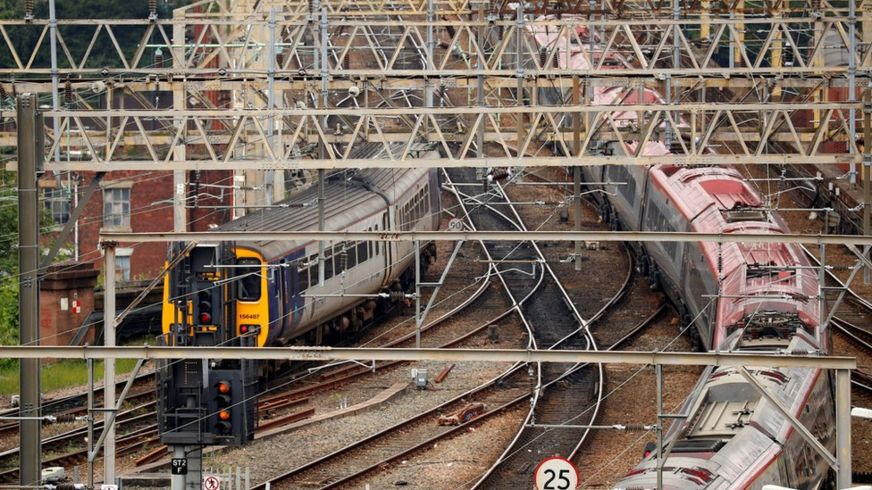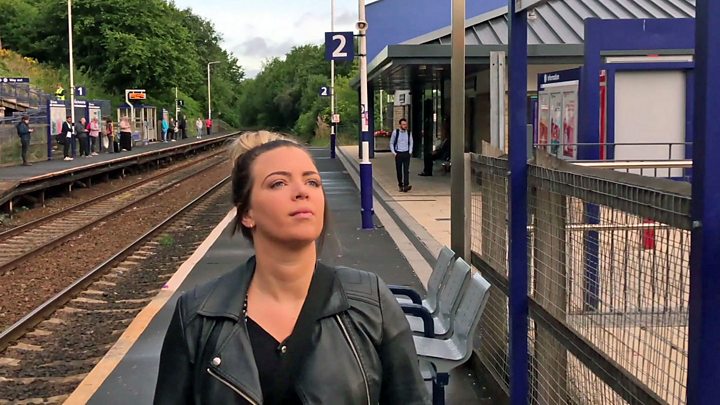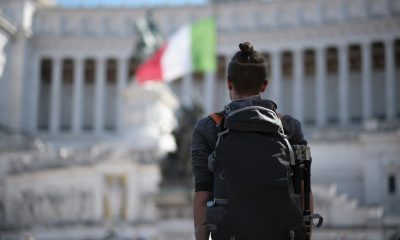Rail fares predicted to rise 3.5% next year
How can fare increases be justified when services are deteriorating and trains are being cancelled or subject to long delays. A substantial service improvement is required to justify any sort of increase in fares http://www.bbc.co.uk/news/business-45167670 ...
EU
Numatyta, kad kitais metais „#UKRailFares“ padidės 3.5%


Millions of commuters are due to face a 3.5% rise in rail fares from January.
The fare hike comes after a summer of chaos for many train customers, after a rail timetable overhaul saw scores of cancellations and delays.
The exact increase will be announced on Wednesday when official inflation figures for July are published.
The expected rise comes after consumer magazine Which? found that rail firms are the second least-trusted industry in the UK.
Economists are predicting that the Retail Prices Index measure of inflation - the number used by the Department for Transport to set rail fare increases - will increase by 3.5%.
This year rail fares rose by 3.6% - the biggest jump for five years.
Campaigners have called on the government to freeze rail fares and use a different measure of inflation, the Consumer Prices Index, to determine rail fare increases. CPI does not take into account the cost of mortgage payments and tends to be lower than RPI.

The Department for Transport said taxpayers subside the network by more than £4 billion a year. "Any fare increase is unwelcome, but it is not fair to ask people who do not use trains to pay more for those who do," a spokesperson said.
The fare rises will affect "anytime" and some off-peak fares, as well as season tickets in England and Wales.
Some train users have already vented their anger on Twitter.
Jean Thierry said: "A substantial service improvement is required to justify any sort of increase in fares."

Another user said: "can someone explain to us why we have some of the highest train fares in Europe with poorer services?"
In May, an overhaul of rail timetables led to widespread rail disruption with Northern bringing in a temporary timetable that removed more than 100 trains a day, while Thameslink, Southern and Great Northern also introduced a reduced service.
On Sunday, Northern cancelled services for Liverpool, Lancashire and Greater Manchester. There was similar disruption on 5 August and across the UK on the day of the World Cup final.
Labour called on the government to freeze rail fares on the routes most severely affected by the timetable changes - Govia Thameslink, Arriva Rail North and First Transpennine Express as a "small gesture of goodwill" for passengers.
The Campaign for Better Transport also called on the government to freeze fares.
"Given the mess surrounding the new timetable, the lack of improvements and the failure to deliver compensation. the government cannot go on telling passengers that fare increases are justified," a spokesperson said.
Consumer group Which? said rail fares have increased by 40% since 2008 - more than one-and-a-half times higher than the rise in CPI inflation (26%) over the same period.
The rail fare rise is taking place a time when a survey by consumer body Which? found that the train industry was the UK's second least-trusted consumer industry.
Consumer satisfaction body Which? said satisfaction with train operators had fallen to 72% from 62% a decade ago.
Kuris?'s consumer insight tracker found that in July 2018, only 23% trusted train travel. This represents a six percentage-point drop compared with July 2017.
"In fact, this makes train travel one of the least-trusted consumer industries, beaten to last place only by car dealers," Kuris? sakė.
Pasidalinkite šiuo straipsniu:
-

 Tabakasprieš 4 dienas
Tabakasprieš 4 dienasKodėl ES tabako kontrolės politika neveikia
-

 Kinija ir ESprieš 4 dienas
Kinija ir ESprieš 4 dienasSusikibkite rankomis, kad sukurtumėte bendros ateities bendruomenę ir sukurtumėte šviesesnę Kinijos ir Belgijos ateitį visapusiškai draugiško bendradarbiavimo partnerystei
-

 Europos Komisijaprieš 4 dienas
Europos Komisijaprieš 4 dienasJK studentams ir jauniems darbuotojams siūlomas ne visai laisvas judėjimas
-

 Vidurio Rytaiprieš 4 dienas
Vidurio Rytaiprieš 4 dienasES reakcija į Izraelio raketų smūgį Iranui reiškia įspėjimą Gazos ruože
























